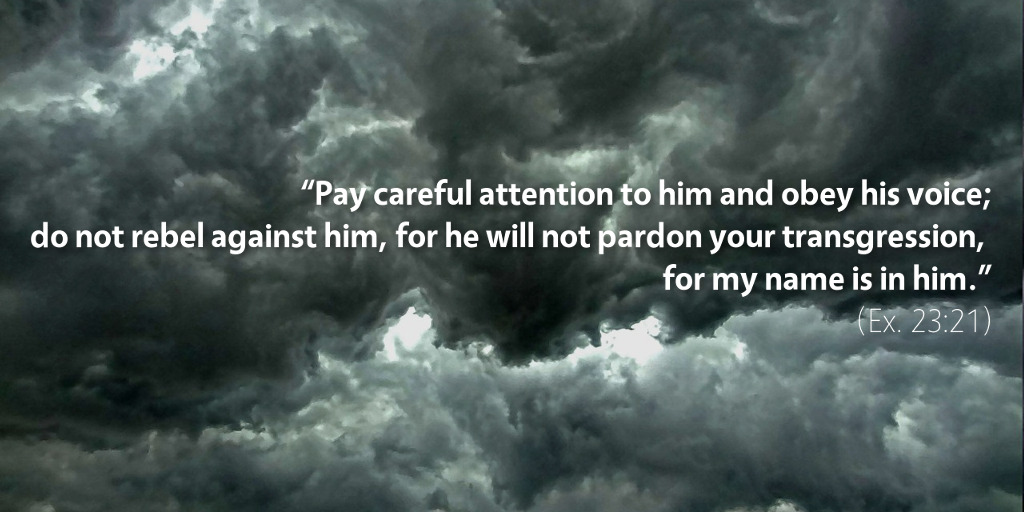Bible Readings for March 12th
Exodus 23 | John 2 | Job 41 | 2 Corinthians 11
At its core, the law functions on the principle “Do this and live.” So when God gives the law to Israel, he promises them that they will receive either blessings or curses—blessings if they obey all that God instructs them to do in his law and curses if they fail to obey what God has instructed them to do.
Along those lines, God promises that he will send to Israel an angel to go with them on their way and into the Promised Land. Then, he solemnly warns them to do all that the angel commands them to do: “Pay careful attention to him and obey his voice; do not rebel against him, for he will not pardon your transgression, for my name is in him” (Ex. 23:21). And in Exodus 23:23–33, God promises Israel that if they obey, he will bless them by blotting out the wicked people groups who were living in the land.
An important question remains, however: How does the principle of “Do this and live” fit with God’s promise to Abraham of unconditional grace? To Abraham, God had sworn a covenant, promising that he would bless Abraham and make Abraham’s name great and that through Abraham God would bless all the families of the earth. God had even passed through the torn animal pieces twice in Genesis 15, swearing to take all the curses for Israel’s covenant-breaking—that is, for their disobedience against God’s law—upon himself.
The best answer is that God’s covenant with Abraham is unbreakable. This covenant of law that God is establishing with Israel at Mount Sinai doesn’t replace the covenant with Abraham, but it is rather built on top of the foundation of the Abrahamic covenant. In other words, it is the first step of working out what God promised to Abraham.
As we will discover as we keep reading, the offspring of Abraham will not be able to keep the terms of God’s law in the covenant that God is establishing with Israel at Mount Sinai through Moses. But when Israel proves that they are unable to keep the terms of the law, God doesn’t pour out the full fury of his curses and wrath on Israel directly. Rather, he sends his own Son to stand for all Israel, taking upon himself the full force of the curse for Israel’s sin and covenant-breaking.
Why? To keep his covenantal promises that he made through Abraham, both by taking upon himself the curse for Israel’s disobedience and by blessing all the families of the earth (not just Israel) through the redeeming work of the ultimate, promised offspring of Abraham.
The law, then, ultimately illustrates both the greatness of the need of God’s people as well as the greatness of the provision that God has made for his people through a Savior, his Son Jesus Christ.
Podcast: Play in new window | Download (5.1MB) | Embed
Subscribe: Apple Podcasts | RSS | More

Scripture quotations are from The Holy Bible, English Standard Version copyright © 2001 by Crossway Bibles, a division of Good News Publishers. Used by permission. All rights reserved.


